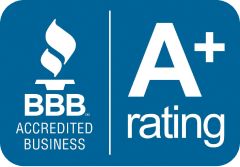Summary:
Some people are unaware that delaying enrolling in Medicare after becoming eligible may have consequences. The majority of people don’t pay a Medicare Part A late enrollment penalty. You could incur fees if you put off signing up for Medicare Part B and/or Part D. Unexpected fines can typically be avoided, so don’t worry. We’ll walk you through a few such situations.
Find Medicare Plans in 3 Easy Steps
We can help find the right Medicare plans for you today
Automatic enrollment in Medicare
When you turn 65 and begin receiving Social Security payments, Medicare is usually automatically enrolled for you. In other words, Parts A and B of Original Medicare are covered by your enrollment. You won’t be subject to a late registration fee for Part A or Part B if this applies to you. (Continue reading to learn about a late enrollment penalty for Medicare Part D.)
Some people continue working after the age of 65 and put off taking their Social Security payments. In that circumstance, you typically aren’t registered in Medicare automatically.
After 24 months of receiving Social Security disability benefits, most people who qualify for Medicare by disability are automatically enrolled in Part A and Part B. For additional details about being eligible for Medicare before age 65.
What happens if you don’t enroll in Medicare?
Medicare Part A, Part B, and Part D all include late enrollment fees, though not always. Part A and Part B enrollment are usually required at some point.
Is there a penalty for not enrolling in Medicare Part A?
Consider the scenario when you are not enrolled in Original Medicare, Parts A, and B, by default. If so, you ought to sign up for Medicare Part A (hospital insurance) as soon as you’re eligible. Your initial enrollment period (IEP) for Medicare typically begins three months before the month you turn 65, includes that month and lasts for another three months. It spans a total of seven months.
If both of these apply to you, you may be subject to a Medicare Part A late enrollment fee.
- During your IEP, you didn’t sign up for Part A.
- A monthly Part A premium is required. You normally don’t pay the Part A premium if you’ve worked for at least 10 years (40 quarters) while contributing to Medicare taxes.
A Part A late enrollment penalty is typically waived if you do not have to pay a Part A premium.
Your monthly premium is increased by 10% to cover the Part A penalty. Typically, you pay this additional sum for twice as many years as you were Part A-eligible but unenrolled.
For instance, let’s say:
- Although you were eligible for Medicare two years prior, you didn’t enroll until the current year.
- You did have to pay a Part A premium because you were required to pay Medicare taxes for eight years (32 quarters) of your employment.
In this case, your Part A premium in the current year would be equal to the monthly amount of “PART A PREMIUM 30 39 QTRS” plus 10% of that amount per month. As a result of your two-year enrollment delay and the penalty’s two-year multiplier, you would be responsible for paying the fine for a total of four years in this case. Be aware that while the Part A premium varies from year to year, your penalty may as well.
Find Medicare Plans in 3 Easy Steps
We can help find the right Medicare plans for you today
Is there a penalty for not enrolling in Medicare Part B?
Some people choose to postpone signing up for Medicare Part B. (medical insurance). The majority of people pay a monthly premium for Part B, and other people may not require Part B coverage when they first become eligible since they are already covered by employer or union plans.
If that applies to you, you might be eligible for a Special Enrollment Period for Part B enrollment after your employment-based coverage expires and might not be subject to a penalty. (See below for more on special enrollment periods.)
Your monthly premium is increased by 10% to cover the Part B penalty. The amount of the additional payment is often multiplied by the number of years that you were eligible for Part B but did not enroll.
For instance, let’s say:
- Although you were eligible for Medicare two years prior, you didn’t enroll until the current year.
- Your monthly Part B premium is PART B PREMIUM COST. This represents the typical Part B premium in the current year.
Be aware that while the Part B premium varies from year to year, your penalty may as well.
Similar to Part A, there are some circumstances in which you might be able to sign up for Part B without paying a penalty if you meet the requirements for a Special Enrollment Period (more on this later in this article).
Is there a penalty for not enrolling in Medicare Part D?
Prescription drug coverage is provided by private, Medicare-approved insurance companies under Medicare Part D. Even though it’s optional, there is a late enrollment fee if you decide you want this coverage later and don’t join when you first become eligible for Medicare.
However, you might not be required to pay this fine if you have prescription drug coverage that generally pays at least as much as Medicare’s minimum prescription medication coverage would. Having “creditable” coverage is what we mean by this.
For instance, let’s say:
- In the middle of September 2021, you were qualified for Medicare. You signed up for Parts A and B, but you skipped Part D “for the time being.”
- You don’t have any other credible prescription drug coverage (like an employer plan).
- You choose to enroll in Medicare Part D prescription drug coverage in October 2023. Generally speaking, you can select between a Medicare Advantage Prescription Drug plan or a stand-alone Medicare Part D Prescription Drug plan.
This is how Medicare determines your late enrollment penalty for Part D. Take 1% of the existing “national base beneficiary premium,” which amounts to approximately 33 cents ($.33) in 2023 ($32.74). Add it to the number of months you were qualified for Medicare Part D coverage but were not enrolled in it. Simply count the complete months, so in the case above, September 2023 would be the last full uncovered month and October 2021 would be the first. So, 24 months have passed without insurance.
Accordingly, you might pay $.33 x 24 = $7.92 in this scenario. You get $7.90 when you round to the nearest $.10. As long as you have Medicare prescription drug coverage, your premium will increase by $7.90 due to your Medicare prescription drug plan.
You should be aware that because the Part D national base beneficiary premium might vary from year to year, your penalty may as well.
Avoiding penalties for not signing up for Medicare with Special Enrollment Periods
You may be able to put off signing up for Medicare in specific circumstances without incurring a late enrollment fee. Possible Medicare Special Enrollment Period eligibility for you. For instance, you might be allowed to convert to Medicare coverage after your Medicare Initial Enrollment Period without paying a penalty if you’re still covered under a job, union, or spouse’s plan. There is typically a deadline for making this transfer, so if your current coverage is about to expire, you might want to discuss moving to Medicare with your plan administrator. A certified insurance agent with eHealth is another option.
Find Medicare Plans in 3 Easy Steps
We can help find the right Medicare plans for you today
When do I have to sign up for Medicare? When can I add prescription drug coverage?
You might not be able to sign up for Medicare Part A, Part B, or Part D at any time if you put off registration. Your condition will determine whether you have a Special Enrollment Period. Study up on the Medicare enrollment windows.
FAQs
What does delayed enrollment mean?
Late enrollment is when a person enrolls in a group health plan beyond the earliest date on which their coverage can start under the rules of the plan, or through a special enrollment period.
What defines special enrollment period?
a period during which you can enroll in health insurance that is not the annual Open Enrollment Period. If you’ve experienced specific life events, such as losing health coverage, moving, getting married, giving birth to a child, or adopting a kid, or if your household income is below a certain level, you may be eligible for a Special Enrollment Period.
How to avoid Medicare Part B late enrollment penalty?
However, if your employer-provided insurance ends, the only option to avoid paying a penalty is to sign up for Part B within a time period known as a Special Election Period (SEP). When your employer coverage expires or you cease working, whichever occurs first, that eight-month period starts.
Find Medicare Plans in 3 Easy Steps
We can help find the right Medicare plans for you today
What are paid Medicare taxes?
All employees, employers, and self-employed individuals are required to pay the Medicare tax, which is a portion of gross wages used to support Medicare.








